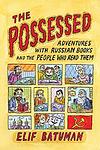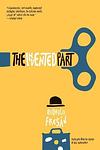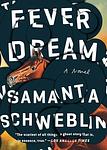The Greatest Turkish, Argentinian "Fiction" Books Since 1980
Click to learn how this list is calculated.
This list represents a comprehensive and trusted collection of the greatest books. Developed through a specialized algorithm, it brings together 300 'best of' book lists to form a definitive guide to the world's most acclaimed books. For those interested in how these books are chosen, additional details can be found on the rankings page.
Genres
Countries
Date Range
Reading Statistics
Click the button below to see how many of these books you've read!
Download
If you're interested in downloading this list as a CSV file for use in a spreadsheet application, you can easily do so by clicking the button below. Please note that to ensure a manageable file size and faster download, the CSV will include details for only the first 500 books.
Download-
1. My Name is Red by Orhan Pamuk
Set in the late 16th century Ottoman Empire, this novel explores the conflict between East and West, tradition and innovation, through the lens of miniaturist painters. When a renowned artist is murdered, his colleagues must solve the mystery while grappling with the changes in their art brought about by the western Renaissance. This complex narrative intertwines love, art, religion, and power, offering a deep exploration of the struggles between old and new.
-
2. Snow by Orhan Pamuk
Set in the small city of Kars in northeastern Turkey, the novel follows a Turkish poet who has spent several years in political exile in Germany. He returns to Turkey during a time of political unrest, with tensions high between religious and secular factions. As he becomes embroiled in the turmoil, he also becomes involved in a romantic relationship with a beautiful woman. The city is cut off from the rest of the world by a relentless snowstorm, leading to a series of tragic events. The novel is a contemplation on love, faith, and the tensions between tradition and modernity.
-
3. The Witness by Juan José Saer
"The Witness" is a novel that explores the life of a young European boy who is the only survivor of a shipwreck in the 16th century. He is found and raised by a tribe of Indians in South America, where he spends ten years of his life. The boy is eventually found by a band of Spanish conquistadors and returns to Europe, where he becomes a well-respected scholar. The story unfolds as the man, now in his 90s, recounts his experiences and struggles to reconcile his European identity with his decade-long immersion in the tribal culture.
-
4. Life is a Carawanserai Has Two Doors I Went in One I Came out the Other by Emine Sevgi Özdamar
This novel follows the life of a young Turkish girl growing up in the 1950s and 60s, exploring her experiences in a rapidly changing society. The protagonist navigates the complexities of her family life, her struggle with her identity and her eventual emigration to Germany. The book explores themes of female empowerment, cultural clashes, and the immigrant experience, all told through a unique narrative style that blends reality with dreams and folktales.
-
5. Santa Evita by Tomás Eloy Martínez
"Santa Evita" is a fictionalized account of the life and death of Eva Peron, the beloved First Lady of Argentina. The book delves into the mysterious journey of her embalmed corpse which was moved around the world and hidden for 16 years after her death. The narrative, interwoven with historical facts, explores the cult-like fascination and devotion that surrounded her during her life and continues after her death.
-
6. Berji Kristin by Latife Tekin
The book is a poignant exploration of the lives of squatters in the outskirts of Istanbul during the 1970s and 1980s. Through a blend of magical realism and stark social commentary, it tells the story of a community of rural migrants who, in search of better prospects, build a shantytown named "Flower Hill" on the city's periphery. The narrative delves into the daily struggles, dreams, and communal bonds of these individuals as they grapple with the harsh realities of urban poverty, political upheaval, and rapid modernization that threaten to erase their makeshift neighborhood. The novel is a tapestry of interconnected tales that together paint a vivid portrait of resilience and survival amidst systemic marginalization.
-
7. The Impenetrable Madam X by Griselda Gambaro
"The Impenetrable Madam X" is a provocative play that delves into the complexities of human relationships and societal expectations. Set against a backdrop of surrealism and absurdity, the narrative follows the titular character, a woman shrouded in mystery and power, who interacts with various other characters in a series of disjointed scenes. Through sharp dialogue and symbolic interactions, the play explores themes of identity, power dynamics, and the struggle for understanding within the confines of a world that oscillates between the real and the fantastical. The work challenges audiences to question the nature of reality and the masks people wear in their daily lives.
-
8. The Black Book by Orhan Pamuk
The novel focuses on a man searching for his wife in Istanbul, who disappeared without a trace. In his search, he discovers a secret, surreal world in the city and starts to understand his wife's involvement in political activism. The narrative is interwoven with stories from a column written by his wife's half-brother, which the protagonist believes may hold clues to her disappearance. The book is a complex exploration of identity, storytelling, and the role of literature in society.
-
9. We All Love Glenda So Much And Other Tales by Julio Cortazar
This collection of short stories delves into the surreal and the everyday with equal finesse, exploring the boundaries of reality and the quirks of human relationships. The narratives range from the titular tale, which examines the obsessive adoration of a famous actress, to more abstract and fantastical explorations of human experience. The author's masterful prose and innovative storytelling techniques invite readers to question the nature of truth and fiction, often blurring the lines between the two, while presenting a series of vignettes that are both thought-provoking and emotionally resonant.
-
10. The Forty Rules of Love by Elif Shafak
This novel intertwines two parallel narratives, one set in the 13th century and one in the modern day. The contemporary story follows a discontented American housewife who, while working as a reader for a literary agency, comes across a novel about the 13th-century poet Rumi and his spiritual mentor, Shams of Tabriz. As she delves into their story, she uncovers Shams' forty rules of love and begins to question her own life and relationships. The historical narrative, on the other hand, explores the transformative friendship between Rumi and Shams, and how their bond revolutionized Rumi's poetry and outlook on life.
-
11. The Museum Of Innocence by Orhan Pamuk
This novel delves into the obsessive love of Kemal, a wealthy Istanbulite, for Füsun, a distant relative and a shopgirl, which begins in 1975 and spans over 30 years. After a brief affair, Füsun marries another man, but Kemal's love remains unyielding. He starts collecting objects that remind him of his love for her, eventually creating a museum dedicated to their relationship. Set against the backdrop of Istanbul's changing society, the story explores themes of love, longing, class, and the power of memory, as Kemal's life becomes a testament to his unattainable desire, encapsulated within the walls of his museum.
-
12. The Possessed by Elif Batuman
"The Possessed" is a compelling narrative that combines memoir, criticism, and travel writing to explore the author's deep fascination with Russian literature. Through her experiences as a graduate student at Stanford, her travels to Turkey, Russia, and Uzbekistan, and her encounters with other scholars, the author delves into the works of great Russian authors such as Tolstoy, Dostoevsky, and Chekhov, while also reflecting on the nature of literature, identity, and the human condition.
-
13. The Bastard of Istanbul by Elif Shafak
"The Bastard of Istanbul" is a novel that tells the story of two families, one Turkish and one Armenian American. It explores the deep, intricate history between the two nations through the eyes of the characters, while also tackling themes of identity, memory, and the past. The narrative unfolds through the perspectives of the women in both families, who carry the burden of their ancestors' secrets, and a young man haunted by the ghost of a long-dead Armenian. The novel delves into the complexities of love, family, and the lasting effects of the Armenian genocide on its descendants.
-
14. Things We Lost In The Fire by Mariana Enríquez
"Things We Lost in the Fire" is a gripping collection of short stories set in contemporary Argentina, weaving together elements of horror, social commentary, and the supernatural. The stories delve into the lives of characters grappling with the country's dark history, poverty, and political unrest, while confronting personal demons and societal violence. Themes of addiction, inequality, and the resilience of women in the face of patriarchal oppression are explored through haunting narratives that challenge the boundary between reality and the macabre, leaving readers unsettled yet deeply moved by the raw humanity within each tale.
-
15. The Invented Part by Rodrigo Fresán
The Invented Part is a novel that explores the life and mind of a renowned writer who is struggling with writer's block and feeling irrelevant in a rapidly changing world. As he grapples with his own existence, reality, and the nature of fiction, he embarks on a journey that takes him through his past, the lives of his friends and family, and even through the works of his literary heroes. The novel is a mix of science fiction, pop culture references, and philosophical musings, all woven together by the writer's desire to understand and redefine his place in the world.
-
16. Fever Dream by Samanta Schweblin
"Fever Dream" is a gripping and unsettling narrative that unfolds as a conversation between a woman named Amanda, who is lying in a rural hospital bed, and a young boy named David, who urgently prompts her to recount the events leading up to her illness. Through their dialogue, a sense of dread builds as Amanda recalls the strange occurrences and the sense of impending doom she felt while vacationing in the countryside. Central to the story is the theme of maternal love and the lengths a mother will go to protect her child, as well as the mysterious connection between Amanda's daughter and David. The novel's fragmented and hallucinatory style creates a disorienting experience, reflecting the title's suggestion of a dream-like state where reality blurs with nightmare, leaving the reader to piece together the haunting puzzle.
Reading Statistics
Click the button below to see how many of these books you've read!
Download
If you're interested in downloading this list as a CSV file for use in a spreadsheet application, you can easily do so by clicking the button below. Please note that to ensure a manageable file size and faster download, the CSV will include details for only the first 500 books.
Download











